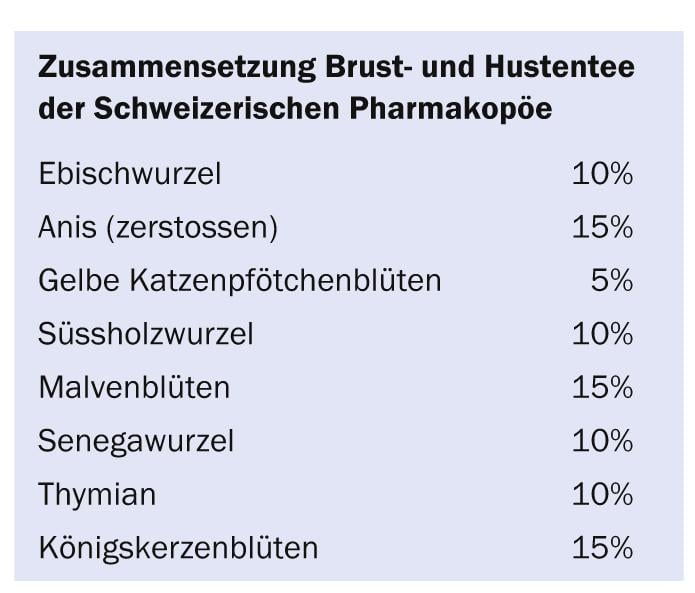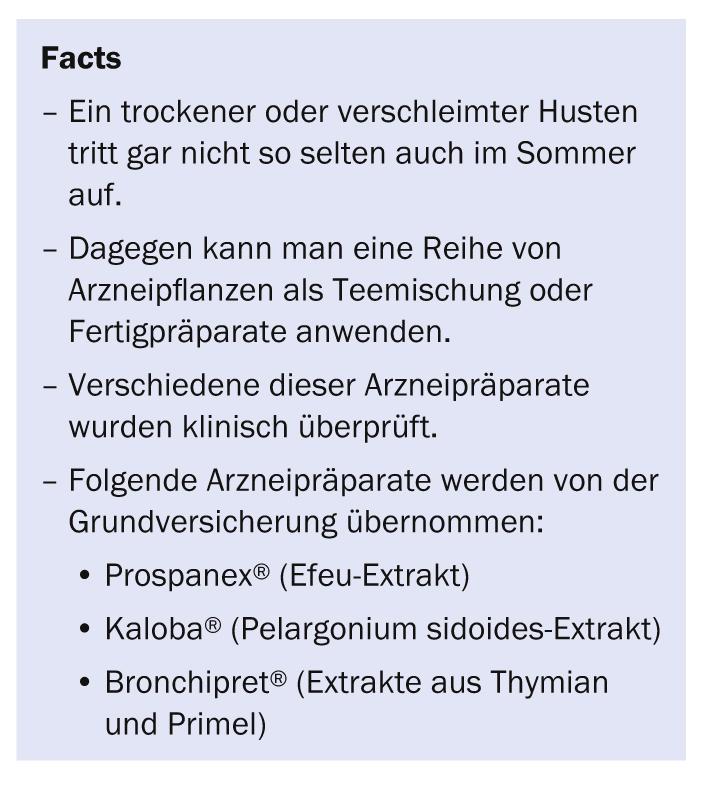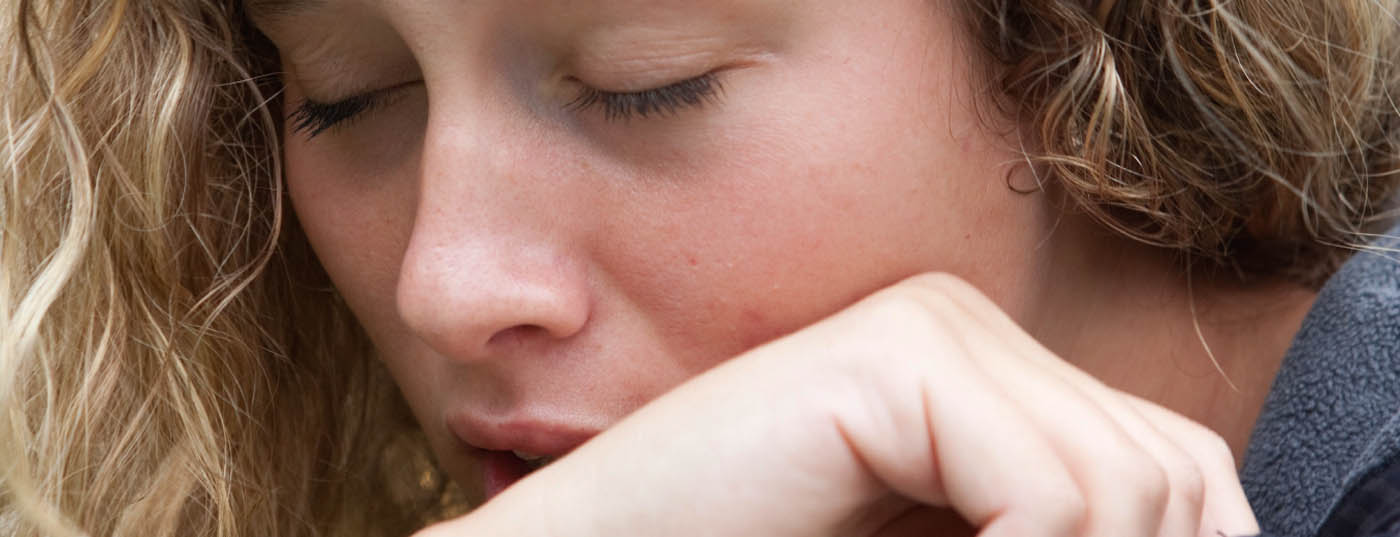The whole body is weakened, aches and pains in the back and extremities, the temperature is elevated, a dripping nose bothers you and a barking cough as well. The environment also suffers. A typical phenomenon for the wet and cold winter season? Sure, most flu infections accompanied by a troublesome cough occur during the cold season. But not only!
More people than you think are often, or even preferably, affected by a flu-like infection in the summer. Because this is not only a consequence of wetness and cold, but equally temperature differences, as can happen in the summer. During the day it’s nice and warm, you’re lightly dressed, and in the evening a downpour sets in with a significant drop in temperature. And already the cold is there, and you start coughing.
Cough
In the case of a cough, the antitussives dextromethorphan and codeine come to mind first and foremost, or acetylcysteine in the case of an obstructed cough, where the thick mucus needs to be liquefied and coughed up.
However, nature also provides us with medicinal plants with which we can very effectively combat a cough, whether in winter or summer, and do not have to immediately resort to standard synthetic preparations. These include thyme (Thymus vulgaris), primrose (Primula veris), ivy (Hedera helix), and other medicinal plants (Table 1).

Tea blends
Tea mixtures are particularly suitable for the treatment of cough, especially in the case of an expectorated cough. Fluid intake in sufficient quantities is known to be part of the therapy. There are numerous prescriptions that are magistrally prescribed and reimbursed by basic insurance. The best known recipe for a chest tea mixture are the so-called Species pectorales PH, the chest and cough tea of the Swiss Pharmacopoeia, the composition of which is shown in the box.

There are many other tea mixtures for cough. Possible is a patient consultation in a pharmacy or one recommends a ready-made commercial preparation.
Clinically tested cough preparations
There are also a number of clinical studies that have documented the efficacy of some of these cough preparations.
Ivy: In 2006, a study appeared in the journal Phytomedicine demonstrating the efficacy and safety of an ivy preparation [1]. This prospective, open-label, multicenter, postmarketing study included 9657 patients (including 5181 children) who had acute or chronic bronchitis. They were treated with a syrup containing ivy. After seven days of treatment, 95% of patients had improved or were symptom-free. The safety of the drug was very good, with an incidence of adverse events of only 2.1%.
Pelargonium sidoides (see also HAUSARZT PRAXIS 1/2014): The standardized Pelargonium sidoides extract EPs® 7630 has been verified with several clinical studies with a positive result, e.g. by Matthys and Heger [2,3]. In acute bronchitis, the significant superiority of the verum group over placebo was demonstrated.
In a four-arm double-blind study [4], 406 patients were randomized to receive either one film-coated tablet 10, 20, or 30 mg EPs® 7630 three times daily or placebo.

The improvement in health-related quality of life and other parameters was significant for all three EPs® 7630 groups compared to placebo.
Combination of thyme and primrose: There are also effective combination preparations such as a preparation of one standardized extract each of thyme and primrose. Its efficacy against acute bronchitis with productive cough has also been clinically demonstrated [5]. This study included 362 patients with acute bronchitis who received either the study drug, a combination of thyme and primrose, or placebo for 11 days. The primary outcome variable was the number of cough episodes occurring from the seventh to the ninth day of treatment. In the verum group, this number decreased significantly compared to placebo. Furthermore, the average bronchitis severity score decreased faster in the verum group than in the comparison group. The values of other bronchitis-specific parameters also improved in the verum group.
Literature:
- Fazio S, et al: Tolerance, safety and efficacy of Hedera helix extract in inflammatory bronchial diseases under clinical practice conditions: A prospective, open, multicentre postmarketing study in 9657 patients. doi:10.1016/j.phytomed.2006.05.003.
- Matthys H, Heger M: Treatment of Acute Bronchitis with a Liquid Herbal Drug Preparation from Pelargonium sidoides (EPs® 7630): A Randomised, Multicentre, Double-Blind, Placebo-Controlled Study. Curr Med Res Opin 2007; 23(2): 323-331.
- Chuchalin AG, et al: Treatment of Acute Bronchitis in Adults With a Pelargonium Sidoides Preparation (EPsR 7630): A Randomized, Double-Blind, Placebo-Controlled Trial. Explore 2005; 1(6): 437-445.
- Matthy H, et al: Pelargonium sidoides in acute bronchitis – Health-related quality of life and patient-reported outcome in adults receiving EPs 7630 treatment. Wien Med Wochenschr 2010 Dec; 160(21-22): 564-570.
- Kemmerich B: Evaluation of efficacy and tolerability of a fixed combination of dry extracts of thyme and herb and primerose root in adults suffering from acute bronchitis with productive cough. A prospective, double-blind, placebo-controlled multicentre clinical trial. Drug Research 2007; 57(9): 607-615.
HAUSARZT PRAXIS 2014; 9(6): 6-7











